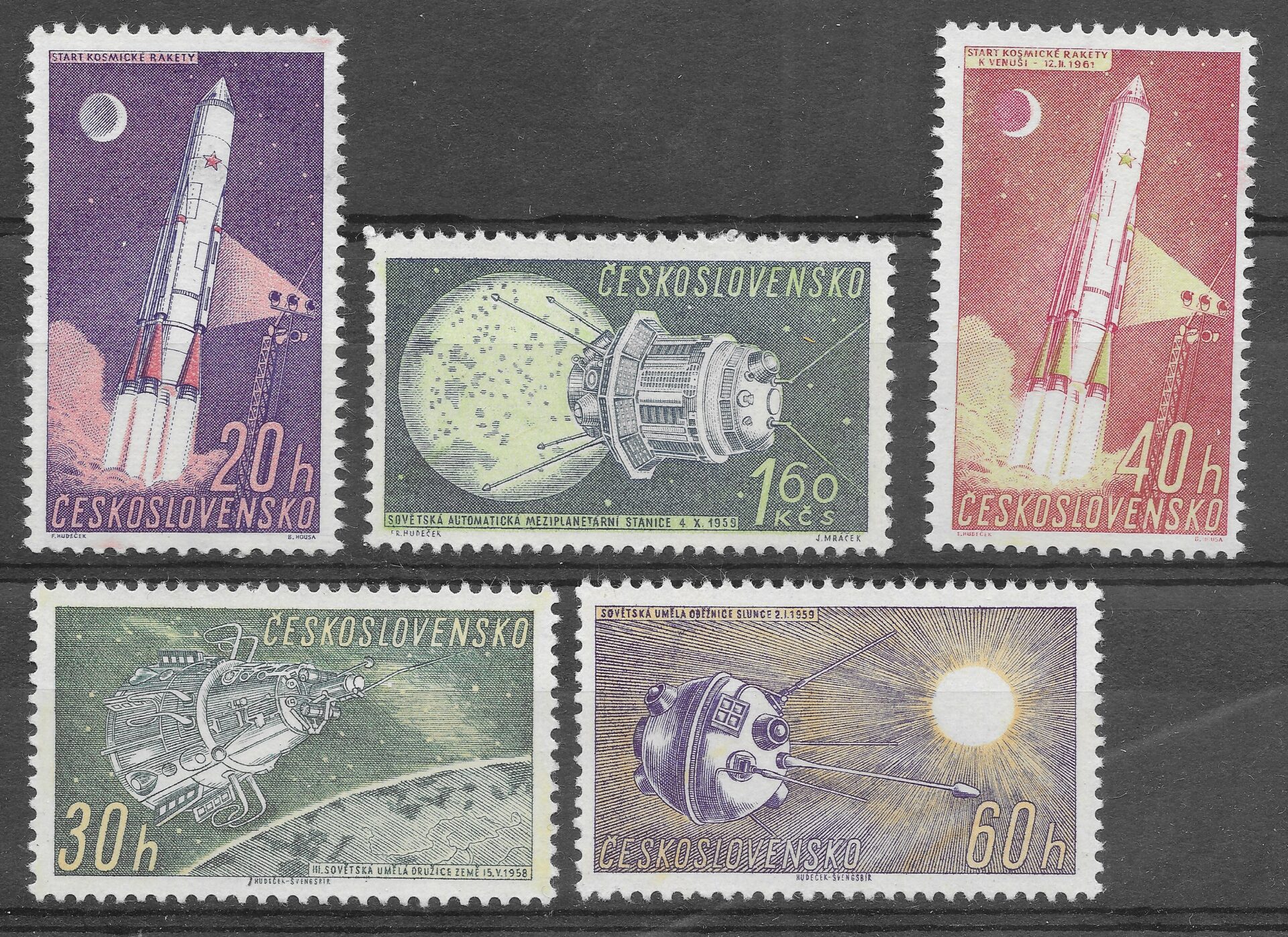Space Research Stamps
In this set of 5 stamps we have some beautiful designs all around space.
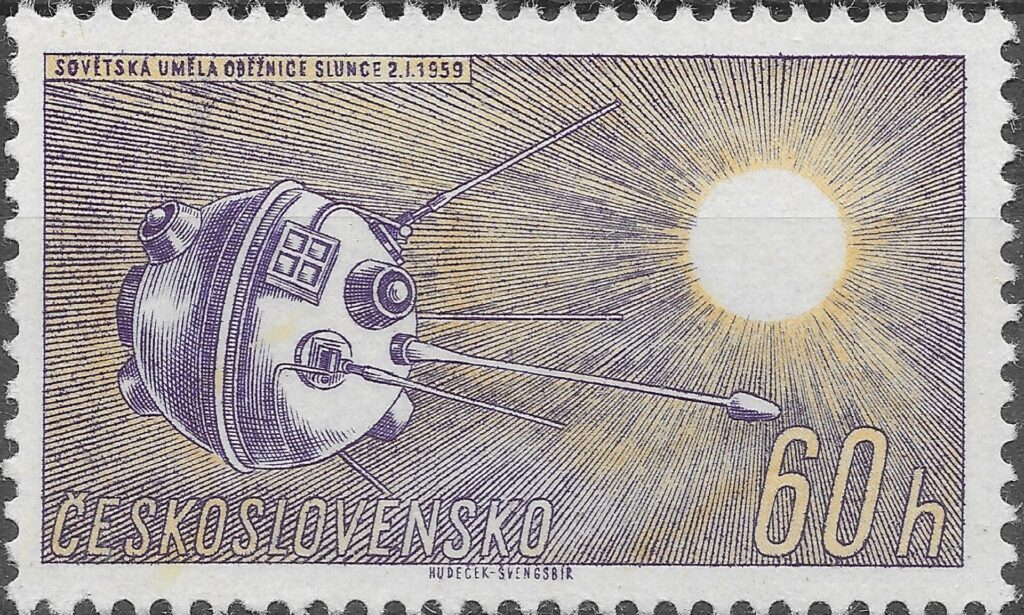
This first postage stamp from Czechoslovakia, commemorates the Soviet artificial sun satellite launched on February 1, 1959. The stamp features an illustration of the satellite orbiting near the sun.The Soviet artificial sun satellite refers to Luna 1, which was launched by the USSR on January 2, 1959. Luna 1 became the first artificial object to reach the escape velocity of the Earth. It remains in orbit around the Sun, between the orbits of Earth and Mars. This was a significant milestone in the history of space exploration.
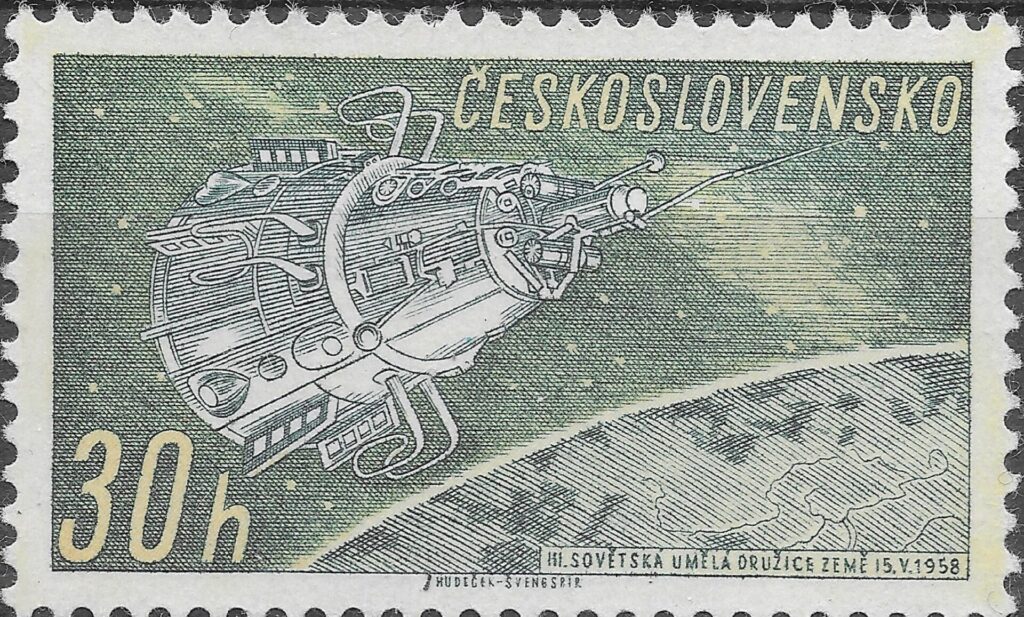
This next stamp features an illustration of a Soviet satellite orbiting Earth. The stamp commemorates the launch of the second human-made satellite by the Soviet Union on November 3, 1957.
he second human-made satellite refers to Sputnik 2, which was launched by the USSR on November 3, 1957. Sputnik 2 was the first spacecraft to carry a living animal, a dog named Laika, into space. This was a significant milestone in the history of space exploration.
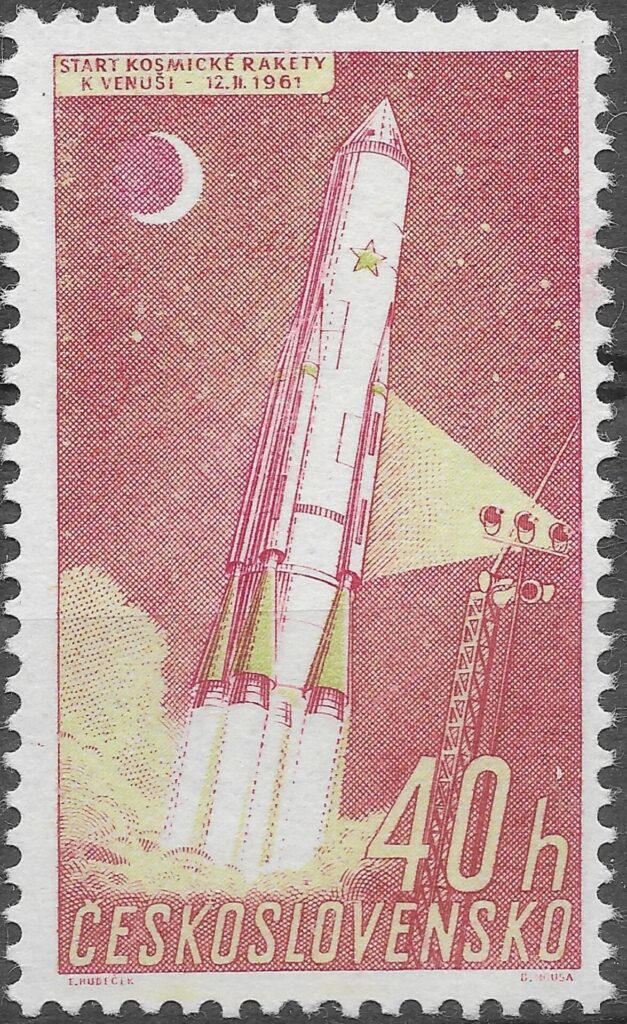
This gorgeous red stamp celebrates the launch of a space rocket to Venus on December 12, 1961. The launch of a space rocket to Venus refers to the Venera program by the Soviet Union, which was aimed at gathering data about Venus, a planet often referred to as Earth’s “sister planet” due to their similar size, mass, and bulk composition. The Venera program was the first to successfully send spacecraft to Venus and return data. The program was active from 1961 to 1984 and made significant contributions to our understanding of Venus’ atmosphere and surface conditions.
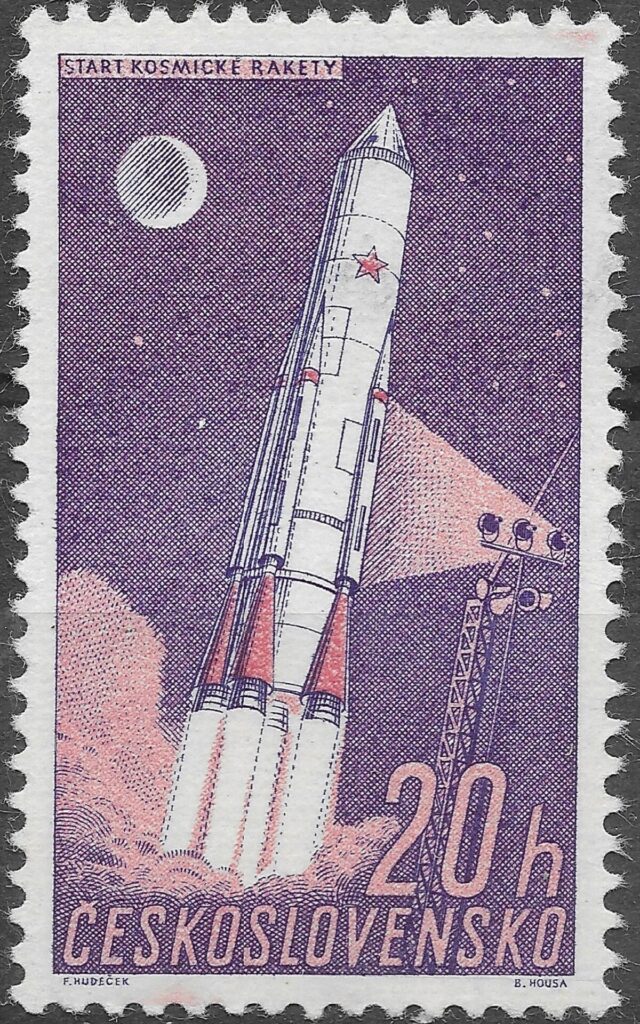
This next rocket launch stamp commemorates a significant event in space exploration. Although, I was unable to identify which rocket this was and it’s significance.
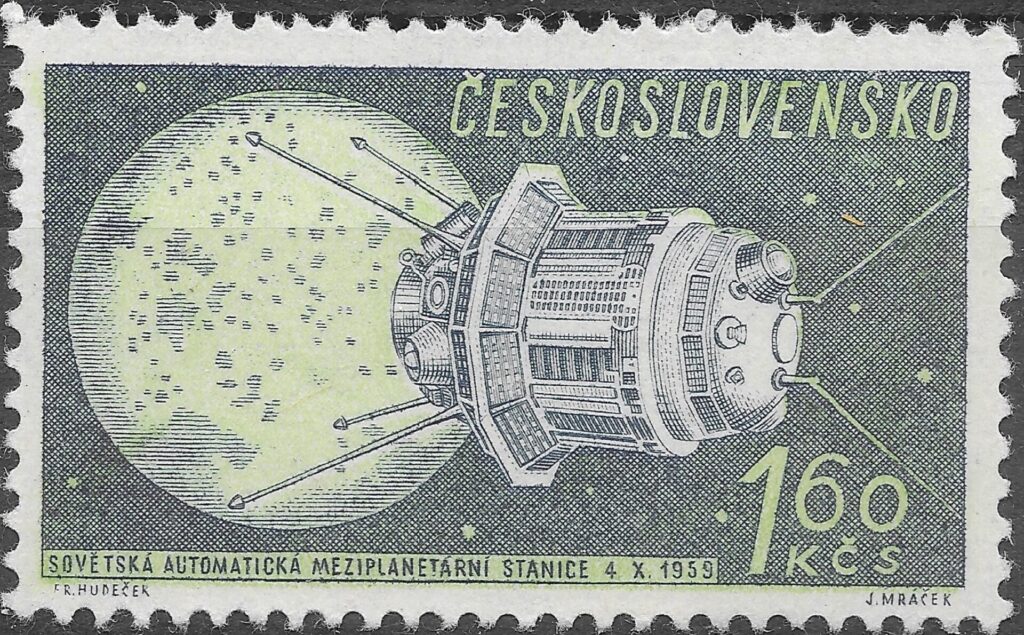
SOVĚTSKÁ AUTOMATICKÁ MEZIPLANETÁRNÍ STANICE 4.X.1959This final stamp features an illustration of a Soviet automatic interplanetary station which appears to be orbiting a celestial body or in space. This likely refers to a significant event related to the Soviet space program that took place on October 4, 1959. The Soviet space program was the predecessor of today’s Roscosmos and brought a number of firsts in space exploration. They were the first to launch an artificial satellite into space, send the first astronaut into space, and achieved a number of firsts in the exploration of the planets of the solar system.
Participation in Soviet Programs
Czechoslovakia collaborated with the Soviet Union in various space programs. Czechoslovak scientists and engineers contributed to the development of spacecraft, satellite technology, and space exploration missions.
Educational and Research Institutions
Czechoslovakia established educational and research institutions dedicated to space research. These institutions worked on projects related to rocketry, satellite technology, and scientific experiments conducted in space.
Czechoslovak Space Research Institute (CSRI)
In 1966, the Czechoslovak Space Research Institute (CSRI) was founded. This institute focused on scientific research and development in space-related fields.
Czechoslovak Satellites
While Czechoslovakia did not launch its independent satellites during the 1960s, it contributed to the design and construction of satellites within the framework of the Soviet Union. These satellites were often used for scientific experiments, Earth observation, and communication purposes.
People of Interest
Zdeněk Kopal (1914-1993): Zdeněk Kopal was a Czech astronomer who made significant contributions to the study of binary star systems and celestial mechanics. While his work was not directly tied to space exploration in the 1960s, his contributions to astronomy were noteworthy.
Václav Příhoda (1911-2001): Václav Příhoda was a Czech engineer and academic known for his contributions to aerospace engineering. He played a role in the development of Czechoslovakian rockets and space-related technologies during the 1960s.
Milan Bureš (1929-1997): Milan Bureš was a Czech engineer who worked on satellite technology. He was involved in the construction of Czechoslovak satellites and contributed to the country’s space research efforts.
Miroslav Minář (1923-1987): Miroslav Minář was a Czech astronomer and space scientist who contributed to the study of solar physics and cosmic rays. His research had applications in space science during the 1960s.
This Wikipedia article that shows a Timeline of space travel by nationality is a really cool resource.
Check out more Czechoslovak stamps from the 1960s.

33 year old casual stamp collector from the UK!
